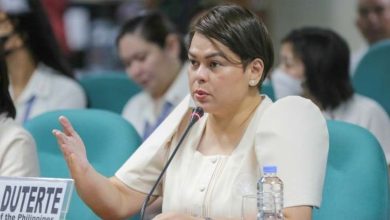One of the biggest cultural phenomena which has taken the world by storm is the Korean wave known as ‘Hallyu’.
Following the airing of the first Korean TV series ‘Bright Girl’ in the Philippines in 2003. many Filipinos, particularly teens and millennials, are now savoring the taste of samgyeopsal, bibimbap, tteokbeoki while experiencing the magic of some of the hottest Korean TV series such as Full House, Descendants of the Sun, Love in the Moonlight, Goblin, Weightlifting Fairy among others.
Others, meanwhile, are stuck to their earphones listening to the songs of Korean pop groups such as Super Junior, EXO, SHINee, BTS, or simply following the news on their favorite drama stars such as Rain, Song Hye Kyo, Song Joong Ki, Park Bo Gum, Kim Soo Hyun, Gong Yoo, to name a few.
And now, it is seems the time to say ‘Annyeong haseyo’ has come as Department of Education (DepEd) Secretary Leonor Briones and South Korean Ambassador to the Philippines Kim Jae Shin inked a memorandum of agreement on the inclusion of Korean Language in the “Special Program in Foreign Language” or SPFL in high schools last June 21.
This program which started in 2009 has already benefitted 10,526 students nationwide. Prior to the introduction of Korean, the SPFL includes lessons on Spanish, Nihongo, French, German, and Cantonese.
This seeks to provide learners with opportunities that will make them both locally and internationally competitive.
People in their mid-30s think it is fine to study foreign languages because it is part of globalization and this adds to knowledge of students. Aside from being able to understand Korean pop song lyrics, Korean language proficiency can help Filipinos especially in dealing with business matters.
“Yes, I’m in favor in the sense that this will be considered as part of the general academic subjects. I mean, students will have a choice on what foreign language they want to learn. It is very necessary because it is the trend. Kailangan nating makipag-sabayan sa pag-aaral ng iba’t ibang language,” Noreen Lazaro, a senior high school teacher at the University of Makati, said.
“Maganda siya for the future of the students especially when it comes to business matters,” Jeffrey Ryan Sanchez, a manager at a real estate firm, noted.
While adults seem to be in favor of this move, students, who are going to be directly affected by this policy, have mixed reactions.
“Opo, dahil matagal na po naming inaasaam na magkaroon ng Korean Language sa mga paaralan sa Pilipinas,” Tiffany Marzo, a senior high school student from Pangasinan said. Others who oppose the move stressed this is unnecessary and will only add burden to their loads of subjects in school.
While it is true that this government program is one of the efforts to make Filipinos globally competitive, preserving our own identity and culture must not be set aside. There is nothing wrong in opening our minds to the possibilities and progress of the changing world but it also important not to ditch our own identity as a country and more importantly, as a Filipino.
(Report via PNA)
Photo Credit: https://freshkorean1.files.wordpress.com




why not introduce Japanese (nihonggo) as well as another optional language to be learned.